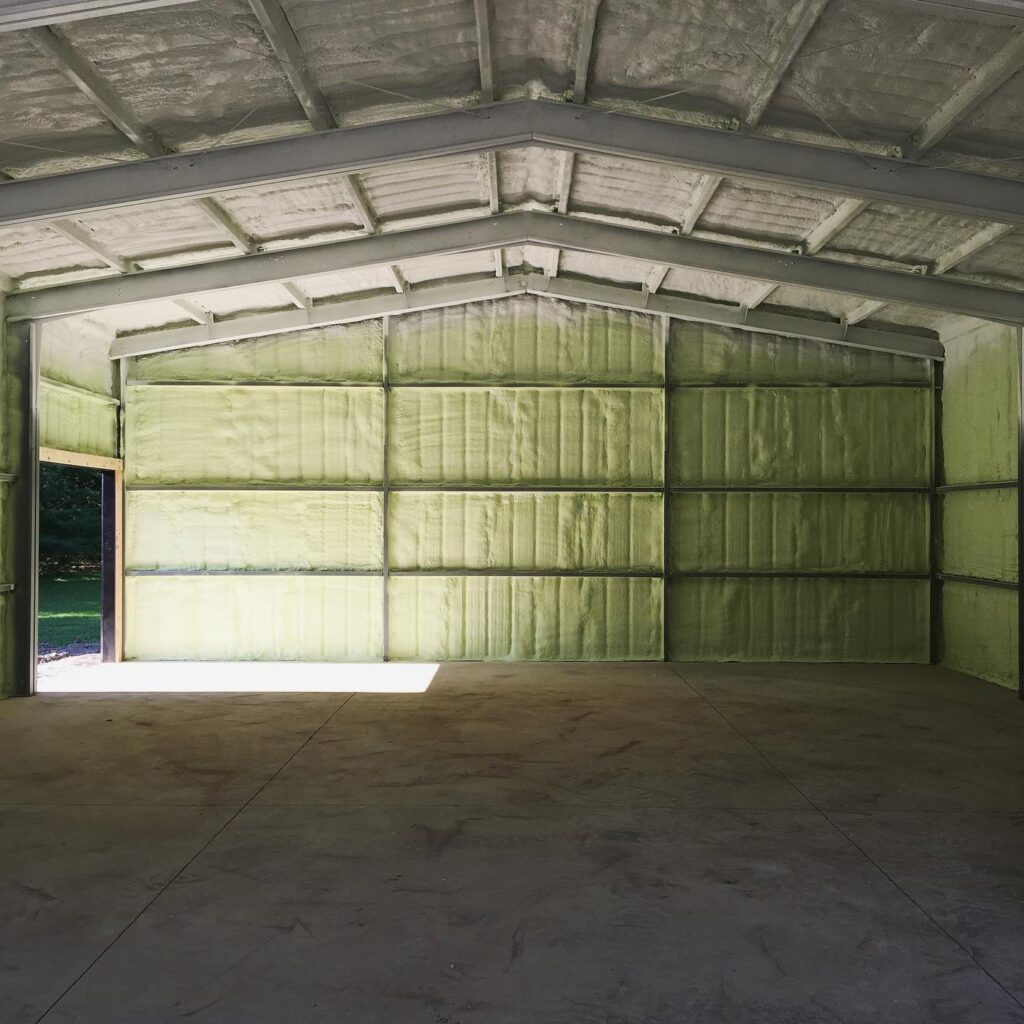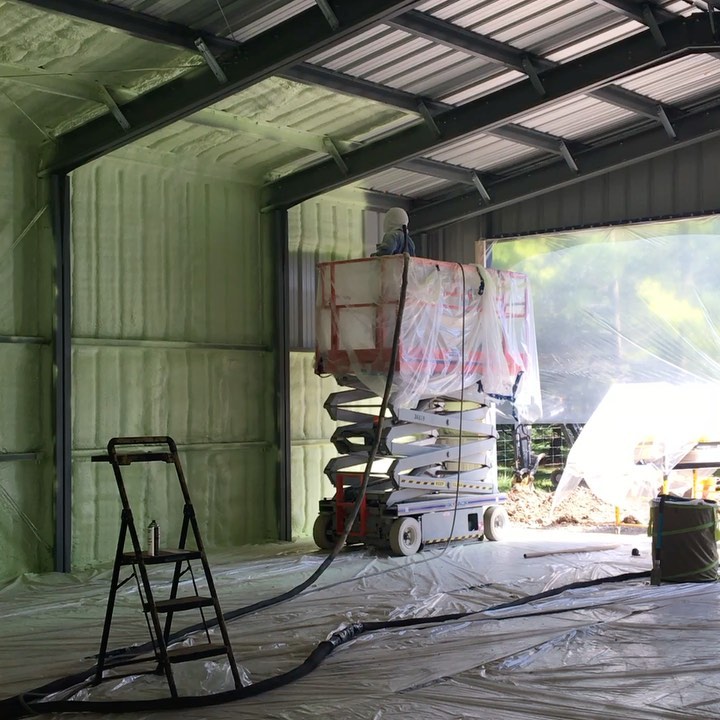Spray Foam on Steel Buildings
Spray foam insulation is a popular option for steel buildings and is often considered a better alternative to blanket insulation for several reasons. Here are some of the advantages of spray foam insulation over blanket insulation:
Better insulation performance: Spray foam insulation provides a superior level of insulation performance compared to blanket insulation. This is because spray foam insulation expands to fill all gaps and voids, creating a seamless, airtight barrier that prevents air infiltration and heat loss. In contrast, blanket insulation can leave gaps and voids where air can leak in and out, reducing its effectiveness.
Greater energy efficiency: Because spray foam insulation provides a more complete insulation barrier, it helps to reduce energy consumption and lower heating and cooling costs. This is particularly important for steel buildings, which can be more challenging to insulate due to their metal construction.
Moisture resistance: Spray foam insulation is also resistant to moisture, which can be a significant problem in steel buildings. Moisture can cause corrosion and damage to metal structures, leading to costly repairs. Spray foam insulation helps to prevent moisture from penetrating the building envelope, protecting the metal structure from damage.
Durability: Spray foam insulation is durable and long-lasting, which means that it does not need to be replaced or repaired as frequently as other insulation types. This can result in significant cost savings over the life of the building.
Improved air quality: Spray foam insulation can also improve indoor air quality by reducing the infiltration of outside air, which can contain pollutants and allergens. This is particularly important for commercial or industrial steel buildings, where air quality can be a concern.
Overall, spray foam insulation is a better alternative to blanket insulation for steel buildings due to its superior insulation performance, energy efficiency, moisture resistance, durability, and indoor air quality benefits.


